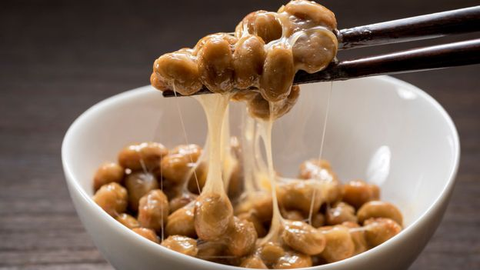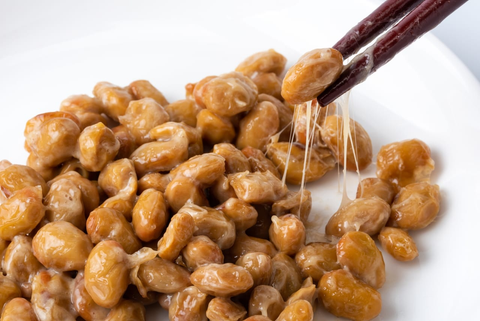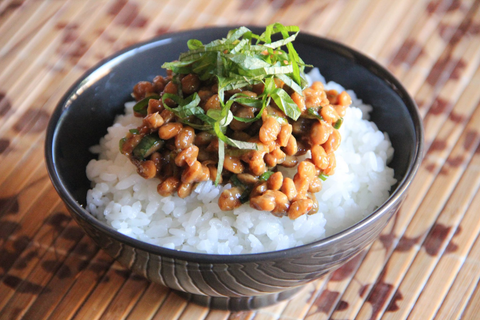
- 0 comments
- by Minase Suiren
Japanese Natto: What Is It And Is It Good For Your Health?
- 0 comments
- by Minase Suiren

If you've ever been curious about natto food, a fermented Japanese bean dish, you're in the right place! In this blog, join Japan With Love as we are about to embark on a journey to explore these natto fermented soybeans! Let's get started!
Japanese natto is a traditional dish made from natto fermented soybeans, known for its slimy texture, distinctive aroma, and robust flavor. The fermentation process imparts unique qualities, resulting in a dish that stands out in both taste and texture. Natto food is a special place in Japanese culture, where it has been consumed for centuries. Natto beans are a staple in Japanese breakfasts, enjoyed with rice or added to various dishes for an extra burst of flavor.

Natto is well-known for its distinctive aroma and taste
The preparation of these fermented Japanese beans involves a meticulous process that has been passed down through generations. Soybeans are soaked, steamed, and then inoculated with Bacillus subtilis, a bacteria responsible for fermentation. The mixture is left to ferment at a controlled temperature, allowing the bacteria to work its magic, transforming the soybeans into natto.
Related post: A Comprehensive Guide to Wholesale Japanese Food
How does natto food compare to other soy-based products in terms of nutrition? While tofu and soy milk are commonly consumed soy products, natto beans offer distinct advantages. Its fermentation process enhances nutrient absorption, and the presence of beneficial bacteria adds an extra dimension to its nutritional profile. Following are some health benefits of natto food:

Natto is a nutritional powerhouse, boasting a rich profile of essential nutrients
Pick this now 👉 Fine Natto Kinase + Coconut Oil 90 Capsules - Japanese Health Care Supplements From Nature
Natto beans, with its distinctive flavor and texture, offer a culinary adventure waiting to be explored. Here's a guide on how to savor these Japanese natto beans in various ways!
Create visually appealing rice bowls by arranging natto atop a bed of steamed rice. Garnish with finely chopped green onions, shredded nori, and a sprinkle of sesame seeds for an aesthetically pleasing presentation.

Natto with white rice is a perfect combination!
Incorporate natto food into homemade sushi rolls for a unique twist. Combine these fermented Japanese beans with avocado, cucumber, and your favorite fish for a flavorful bite.
Mix natto Japanese food into your morning omelette for a protein-packed and savory breakfast option. Add cheese, tomatoes, and herbs for extra flavor.
Make salad bowls by incorporating natto food into a bed of fresh greens, cherry tomatoes, and other colorful vegetables. Drizzle with a tangy sesame dressing for an added burst of flavor.
Mix these fermented Japanese beans with a raw egg and soy sauce, then pour natto over a bowl of hot rice for a simple and popular Japanese breakfast.

Whether you go for traditional preparation or get creative with fusion recipes, the key is to explore and find a style to find what type of fermented natto suits your taste buds!
Taken as a whole, natto isn't just a flavorful addition to your meals; it's a powerhouse of nutrition. With its high-quality protein, essential vitamins, and minerals, natto beans offer a well-rounded array of nutrients crucial for maintaining a healthy lifestyle! For more of a Japanese culinary journey, stay tuned with us!
Share:
How To Make Mochi At Home With Simple Recipes And Steps?
Better Deals, Sweeter Love: Save Big This V-Day With Surprise Offers!